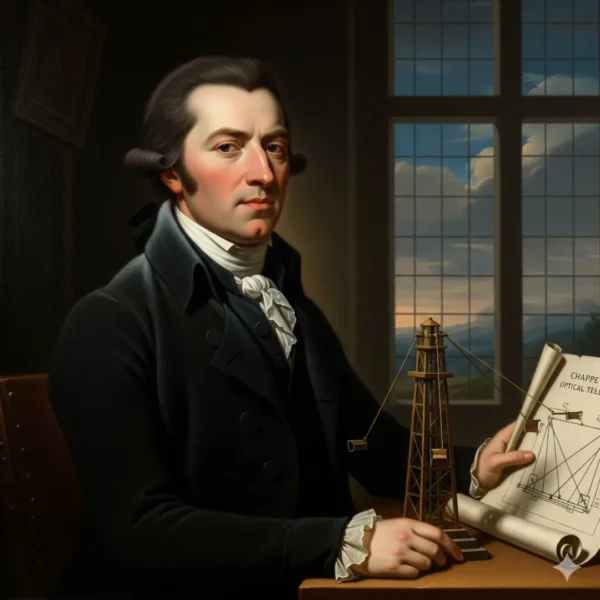A Glimpse into France’s Rich History: Iconic Figures and Their Contributions
Special persons in France, France, a land steeped in history and culture, has produced numerous individuals who have made significant contributions to the world. These special persons have shaped the course of art, science, philosophy, and politics, leaving an enduring legacy that continues to inspire and influence us today.
See MOre: Mamasan vs papasan wheelchairs, 2025.
A Glimpse into France’s Rich History: Iconic Figures and Their Contributions
France, a European nation known for its beauty, culture, and history, has been home to many influential individuals who have shaped the world. Disability ,These figures have made significant contributions in various fields, including art, science, philosophy, and politics. Let’s explore some of the most iconic figures from France’s past.
Marie Curie, A Pioneer in Science

Marie Curie, a Polish-born physicist and chemist, is renowned for her groundbreaking work in radioactivity. She was the first woman to win a Nobel Prize, the first person and only woman to win the Nobel Prize twice, and the only person to win the Nobel Prize in two different scientific fields. Curie’s discoveries have had a profound impact on medicine, physics, and chemistry.
Napoleon Bonaparte: A Military Genius and Political Leader
Napoleon Bonaparte was a French military leader and statesman who rose to power during the French Revolution. He conquered much of Europe and established the Napoleonic Code, a legal system that influenced laws in many countries. Napoleon’s reign was marked by both military victories and political reforms.
Claude Monet: The Father of Impressionism
Claude Monet was a French painter who is considered one of the founders of Impressionism. His paintings, characterized by their use of light, color, and brushstrokes, captured the beauty of landscapes and everyday life. Monet’s work had a profound influence on the development of modern art.
Voltaire: A Champion of Freedom and Tolerance
Voltaire was a French philosopher, writer, and historian who was a leading figure of the Enlightenment. He advocated for freedom of speech, religious tolerance, and social justice. Voltaire’s writings criticized the French monarchy and the Catholic Church, and he is considered one of the most influential thinkers of his time.
Simone de Beauvoir: A Feminist Icon
Simone de Beauvoir was a French philosopher, writer, and feminist. Her book “The Second Sex” is considered a landmark work in feminist theory. Beauvoir argued for the equality of women and challenged traditional gender roles. Her writings had a profound impact on the feminist movement.
Conclusion
These are just a few examples of the many influential figures who have emerged from France. Their contributions to art, science, philosophy, and politics have shaped the world we live in today. France’s rich history continues to inspire and influence people around the globe.
The Father of Modern Philosophy: René Descartes
René Descartes, often referred to as the “Father of Modern Philosophy,” was a French philosopher, mathematician, and scientist. His groundbreaking work on rationalism and his famous dictum “I think, therefore I am” revolutionized the field of philosophy. Descartes’ contributions to mathematics, particularly in the development of analytic geometry, also had a profound impact on the scientific revolution.
René Descartes: The Father of Modern Philosophy

René Descartes, a prominent figure in the 17th century, is widely regarded as the “Father of Modern Philosophy.” His innovative ideas and contributions to various fields have had a lasting influence on Western thought.
A Life of Intellectual Pursuit
Born in La Haye, France, in 1596, Descartes received a Jesuit education, which instilled in him a passion for mathematics and philosophy. He later served as a soldier in the Dutch army, during which time he developed a skeptical approach to knowledge.
The Method of Doubt
Descartes’ most famous work, “Meditations on First Philosophy,” introduced his method of doubt. He argued that in order to establish a firm foundation for knowledge, one must systematically doubt everything that can be doubted. By doing so, he sought to uncover truths that were beyond doubt.
“I Think, Therefore I Am”
One of the most famous philosophical statements of all time, “Cogito, ergo sum” (I think, therefore I am), is a central tenet of Descartes’ philosophy. This statement asserts that the existence of one’s own thought is the only thing that cannot be doubted, and therefore, one’s own existence is proven.
Rationalism and Dualism
Descartes is considered a rationalist, emphasizing reason as the primary source of knowledge. He believed that clear and distinct ideas, obtained through reason, are the foundation of truth. Descartes also proposed a dualistic view of reality, dividing it into two distinct substances: the mind (res cogitans) and the body (res extensa).
Contributions to Mathematics
Contributions to Mathematics
In addition to his philosophical work, Descartes ma
In addition to his philosophical work, Descartes made significant contributions to mathematics. He is credited with developing analytic geometry, which combines algebra and geometry to solve problems. This innovation paved the way for further advancements in mathematics and science.
Legacy
Descartes’ ideas and methods have had a profound impact on Western philosophy and science. His emphasis on reason, skepticism, and the individual as the source of knowledge has influenced generations of philosophers and scientists. Descartes’ work continues to be studied and debated, and his legacy as the “Father of Modern Philosophy” remains secure.
The Queen of France: Marie Antoinette

Marie Antoinette, the Austrian-born queen of France, is perhaps one of the most famous and controversial figures in French history. Her lavish lifestyle and perceived indifference to the suffering of the French people contributed to the outbreak of the French Revolution. Despite her tragic fate, Marie Antoinette remains a fascinating and enigmatic figure who continues to captivate the public imagination.
Marie Antoinette: The Queen of France
Marie Antoinette, the Austrian-born queen of France, is a figure shrouded in both fascination and controversy. Her life, marked by luxury, scandal, and tragedy, has captivated historians and the public alike for centuries.
A Royal Marriage
Marie Antoinette was born Maria Antonia Josepha Johanna von Habsburg-Lothringen in Vienna, Austria, in 1755. At the age of fourteen, she was married to Louis XVI, the heir to the French throne. The marriage was a political alliance between Austria and France, aimed at strengthening ties between the two nations.
A Queen of Controversy
Marie Antoinette’s life as queen of France was marked by both luxury and controversy. Her lavish spending habits and perceived indifference to the suffering of the French people contributed to the growing discontent that led to the French Revolution.
- The Diamond Necklace Affair: One of the most famous scandals involving Marie Antoinette was the Diamond Necklace Affair. In this affair, a con artist convinced a group of wealthy women to purchase a diamond necklace on credit, claiming that the queen had ordered it. When the queen denied the order, the scandal erupted, damaging her reputation.
- The Affair of the Diamond Collar: Another scandal involving Marie Antoinette was the Affair of the Diamond Collar. In this affair, a woman claimed to have been given a diamond collar by the queen, which she had pawned to pay off debts. The queen denied the claim, but the scandal further damaged her reputation.
The French Revolution
The growing discontent with the French monarchy culminated in the French Revolution in 1789. Marie Antoinette and her husband, Louis XVI, were arrested and imprisoned. In 1793, they were both found guilty of treason and executed by guillotine.
A Tragic Figure
Despite her controversial reputation, Marie Antoinette remains a tragic figure. Her life was marked by loss, hardship, and ultimately, death. Her story serves as a reminder of the power of public opinion and the dangers of unchecked privilege.
The Enduring Fascination
Marie Antoinette’s life and legacy continue to fascinate people today. She has been the subject of numerous books, films, and plays. Her story is a testament to the enduring power of history and the human fascination with tragedy and scandal.
The Sun King: Louis XIV

Louis XIV, often referred to as the “Sun King,” ruled France for an unprecedented 72 years. His reign was marked by a period of great prosperity and cultural flourishing, known as the Age of Louis XIV. Louis XIV’s construction of the Palace of Versailles and his patronage of the arts solidified France’s position as a leading European power.
The Sun King: Louis XIV
Louis XIV, one of the most influential monarchs in European history, reigned over France from 1643 to 1715. His reign, often referred to as the Age of Louis XIV, was a period of great prosperity, cultural flourishing, and political dominance for France.
The Sun King
Louis XIV earned the nickname “Sun King” from his role as the center of power and attention in France. He believed that the state revolved around him, just as the planets revolve around the sun. This belief shaped his policies and his approach to governing.
The Palace of Versailles
One of Louis XIV’s most significant achievements was the construction of the Palace of Versailles. Originally a hunting lodge, Versailles was transformed into a magnificent palace that served as the seat of government and a symbol of royal power. The palace’s lavish gardens, intricate architecture, and opulent furnishings were a testament to France’s wealth and grandeur.
The Age of Louis XIV
The Age of Louis XIV was a period of great cultural and artistic achievement. Louis XIV patronized many artists, writers, and musicians, including Molière, Racine, and Lully. The king’s support for the arts helped to establish France as a leading cultural center in Europe.
Absolutism and Centralization
Louis XIV was an absolute monarch, meaning he held supreme power and authority. He centralized government control, reducing the influence of the nobility and strengthening the power of the monarchy. This centralization helped to unify France and create a strong and stable government.
Foreign Policy and Wars
Louis XIV’s foreign policy was characterized by a desire to expand French territory and increase French influence in Europe. He engaged in several wars, including the War of the Spanish Succession and the War of the League of Augsburg. While these wars were costly and did not always result in significant territorial gains, they helped to solidify France’s position as a major European power.
Legacy
Louis XIV’s reign had a profound impact on French history and culture. His construction of Versailles, his patronage of the arts, and his centralization of government helped to shape France’s identity as a leading European nation. Although his policies were sometimes criticized for their extravagance and their emphasis on the monarchy, Louis XIV remains one of the most influential figures in French history.
The Artist Extraordinaire: Claude Monet
Claude Monet was a French painter who, along with Édouard Manet and Pierre-Auguste Renoir, was a founder of French Impressionist painting. Monet is best known for his series of paintings depicting the same scene at different times of day or year, such as his Water Lilies series. His innovative use of light and color revolutionized the art world and had a lasting influence on subsequent generations of artists.
Claude Monet: The Master of Light and Color
Claude Monet, a renowned French painter, is celebrated for his groundbreaking contributions to the Impressionist movement. His innovative techniques, particularly his use of light and color, have had a profound impact on the art world.
Early Life and Artistic Influences
Born in Paris in 1840, Monet displayed a natural talent for art from a young age. He studied under various artists, including Eugène Boudin, who introduced him to plein-air painting, the practice of painting outdoors. Monet’s early works were influenced by the Barbizon School, a group of landscape painters known for their realistic depictions of nature.
The Impressionist Revolution
In the 1860s, Monet joined a group of young artists who would later become known as the Impressionists. This group challenged traditional artistic conventions by focusing on capturing the fleeting effects of light and color in their paintings. Monet’s work, with its emphasis on capturing the atmosphere and mood of a scene, was a key example of this movement.
The Water Lilies Series
One of Monet’s most famous series of paintings is his Water Lilies. This collection depicts the same pond in his garden at Giverny at different times of day and year. Monet’s use of color and light in these paintings creates a sense of tranquility and harmony, while also exploring the passage of time and the ever-changing nature of reality.
Other Notable Works
In addition to his Water Lilies series, Monet is also known for his Impression, Sunrise, a pivotal work that gave the Impressionist movement its name. He also painted numerous landscapes, including Haystacks and Rouen Cathedral. Monet’s ability to capture the essence of a scene and convey his emotions through color and light is evident in all of his works.
Legacy
Claude Monet’s legacy is undeniable. His innovative approach to painting and his mastery of light and color have influenced countless artists. Monet’s work continues to inspire and captivate audiences around the world. His paintings are celebrated for their beauty, their technical brilliance, and their ability to evoke emotion.
The Founding Father of Modern Chemistry: Antoine Lavoisier
Antoine Lavoisier was a French chemist who is considered the “Father of Modern Chemistry.” Lavoisier’s contributions to chemistry include the discovery of oxygen, the development of the law of conservation of mass, and the introduction of a systematic naming system for chemical compounds. His work laid the foundation for the modern understanding of chemistry and had a profound impact on the scientific revolution.
Antoine Lavoisier: The Father of Modern Chemistry
Antoine Lavoisier, a French chemist born in 1743, is widely regarded as the “Father of Modern Chemistry.” His groundbreaking work revolutionized the understanding of chemical reactions and laid the foundation for the modern scientific method.
Early Life and Education
Lavoisier was born into a wealthy family in Paris, France. He studied law but developed a keen interest in science, particularly chemistry. He became a member of the prestigious French Academy of Sciences in 1772.
The Discovery of Oxygen
One of Lavoisier’s most significant contributions was the discovery of oxygen. In the late 18th century, scientists believed that combustion was a process of combining substances with a mysterious substance called phlogiston. Lavoisier conducted experiments that challenged this theory, demonstrating that combustion involves the combination of substances with oxygen. His discovery of oxygen was a major breakthrough in chemistry and helped to overturn the phlogiston theory.
The Law of Conservation of Mass
Lavoisier also formulated the law of conservation of mass, which states that matter cannot be created or destroyed. This fundamental law of chemistry is essential for understanding chemical reactions. Lavoisier’s experiments, conducted with precise measurements and careful observations, provided strong evidence for the law of conservation of mass.
The Introduction of a Systematic Naming System

Lavoisier recognized the need for a standardized system for naming chemical compounds. He collaborated with other scientists to develop a systematic nomenclature based on the composition of compounds. This system, which is still used today, greatly simplified the study and communication of chemistry.
Contributions to Other Fields
In addition to his work in chemistry, Lavoisier also made significant contributions to other fields. He was involved in agricultural reforms, public health initiatives, and the development of the metric system.
Legacy
Lavoisier’s work had a profound impact on the scientific revolution. His contributions to chemistry laid the foundation for the modern understanding of chemical reactions, the law of conservation of mass, and the systematic naming of chemical compounds. His legacy continues to inspire scientists and researchers around the world.
The Scientist Who Discovered Radium: Marie Curie
Marie Curie, a Polish-born naturalized French physicist and chemist, was the first woman to win a Nobel Prize and the only person to win Nobel Prizes in two different scientific fields. Curie’s groundbreaking research on radioactivity led to the discovery of the elements polonium and radium. Her work had a significant impact on the fields of medicine and physics, and she is considered one of the most influential scientists of all time.
The Author of the Three Musketeers: Alexandre Dumas
Alexandre Dumas was a French novelist, playwright, and historian who is best known for his historical romances, such as The Three Musketeers and The Count of Monte Cristo. Dumas’s works are celebrated for their adventure, intrigue, and vivid characters. His novels have been translated into numerous languages and continue to be popular today.
The Philosopher of the Enlightenment: Voltaire
Voltaire was a French writer, philosopher, and historian who was a leading figure of the Enlightenment. Voltaire’s satirical works and his advocacy for freedom of speech and religion helped to undermine the authority of the French monarchy and the Catholic Church. Voltaire’s ideas had a profound influence on the French Revolution and the development of modern democratic societies.
The Impressionist Painter: Édouard Manet
Édouard Manet was a French painter who, along with Claude Monet and Pierre-Auguste Renoir, was a founder of French Impressionist painting. Manet’s work challenged traditional academic painting conventions and paved the way for the development of Impressionism. His paintings, such as Déjeuner sur l’Herbe and Olympia, were both celebrated and criticized for their bold subject matter and innovative style.
The Inventor of the Telegraph, Claude Chappe

Claude Chappe was a French engineer who invented the optical telegraph, a system of signaling using towers and semaphores that was used to transmit messages over long distances. Chappe’s invention revolutionized communication and played a significant role in the French Revolution.
These are just a few examples of the many special persons who have contributed to France’s rich history and culture. Their achievements continue to inspire and influence us today, and their legacies will live on for generations to come.
References: –
- “famous people from France”
- “influential figures in French history”
- “notable individuals in French culture”
- “renowned French scientists”
- “famous French artists”
- “iconic French athletes”
You can also narrow down your search by specifying a particular field or time period. For example, if you’re interested in French philosophers of the 17th century, you could search for “famous French philosophers 17th century”.
Once you’ve conducted your search, Google Scholar will provide you with a list of relevant academic articles, books, and other scholarly sources. You can then read these sources to learn more about the special persons in France who interest you.
Here are a few examples of specific individuals you might find through your search:
- Marie Curie: A Polish-born French physicist and chemist known for her pioneering research on radioactivity.
- Claude Monet: A French painter who was a founder of French Impressionist painting.
- Albert Camus: A French philosopher, novelist, and playwright who was awarded the Nobel Prize in Literature in 1957.
- Émile Zola: A French novelist, journalist, and political activist who is considered one of the most important figures in French literature.
- Coco Chanel: A French fashion designer who revolutionized women’s fashion in the 20th century.
FAQs:
1. Who are considered special persons in France?
In France, “special persons” often refer to individuals with disabilities or special needs. This includes people with physical, sensory, cognitive, or intellectual impairments.
2. What are the rights of special persons in France?
French law guarantees a wide range of rights for special persons, including the right to education, employment, healthcare, and social services. These rights are protected by various laws and regulations.
3. Are there any specific government programs or initiatives for special persons in France?
Yes, the French government offers a variety of programs and initiatives to support special persons. These include:
- MDPH (Maison Départementale des Personnes Handicapées): Regional agencies that provide support and services to individuals with disabilities.
- AAH (Allocation aux Adultes Handicapés): A disability allowance for adults with significant impairments.
- PCH (Prestation de Compensation Handicap): A benefit to help cover the costs of daily living for individuals with disabilities.
4. What are the challenges faced by special persons in France?
Despite the legal protections and government support, special persons in France may still face challenges such as:
- Accessibility: Ensuring that public spaces, transportation, and buildings are accessible to people with disabilities.
- Employment: Finding employment opportunities that match their skills and abilities.
- Social inclusion: Overcoming societal barriers and discrimination.
5. How can I get a disability card in France?
To obtain a disability card (carte d’invalidité), you typically need to provide medical documentation and undergo an evaluation by a specialized medical board. The MDPH is responsible for issuing these cards.
6. What are the benefits of having a disability card in France?
A disability card can provide access to various benefits and services, such as:
- Reduced public transportation fares
- Priority access to certain public services
- Tax breaks
- Government allowances
7. Are there any organizations or associations that support special persons in France?
Yes, there are numerous organizations and associations that advocate for the rights of special persons and provide support services. Some examples include:
- APAJH (Association Parentale d’Accueil et de Jour pour Handicapés)
- Handicap International
- Association Valentin Haüy (for people with visual impairments)
8. What are the educational opportunities for special persons in France?
France has a well-developed system of inclusive education, which aims to provide education for all children, regardless of their abilities. There are specialized schools and classes for children with disabilities, as well as support services within mainstream schools.
9. What are the healthcare options available for special persons in France?
The French healthcare system provides comprehensive coverage for individuals with disabilities, including:
- Rehabilitation services
- Assistive technology
- Specialized medical care
10. How can I find more information about support services for special persons in France?
You can find information by contacting the MDPH in your department or by visiting the websites of relevant organizations and associations. Additionally, there are online resources and helplines available to provide assistance.



